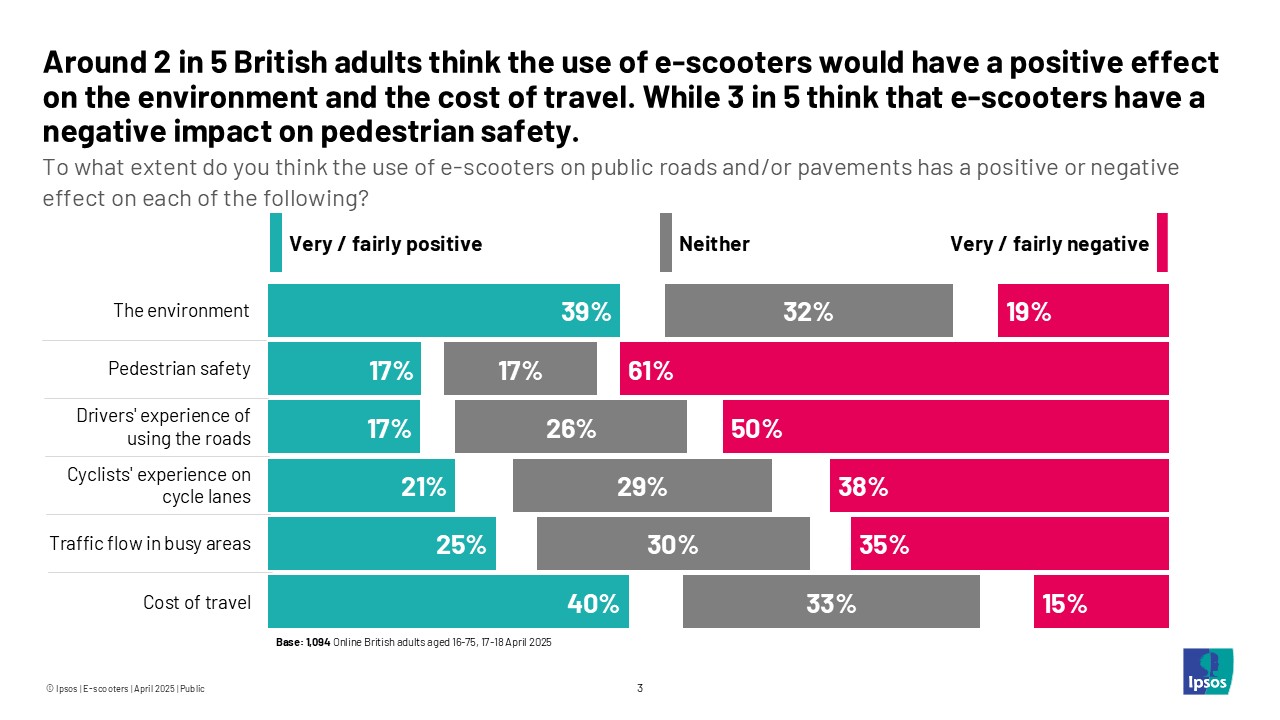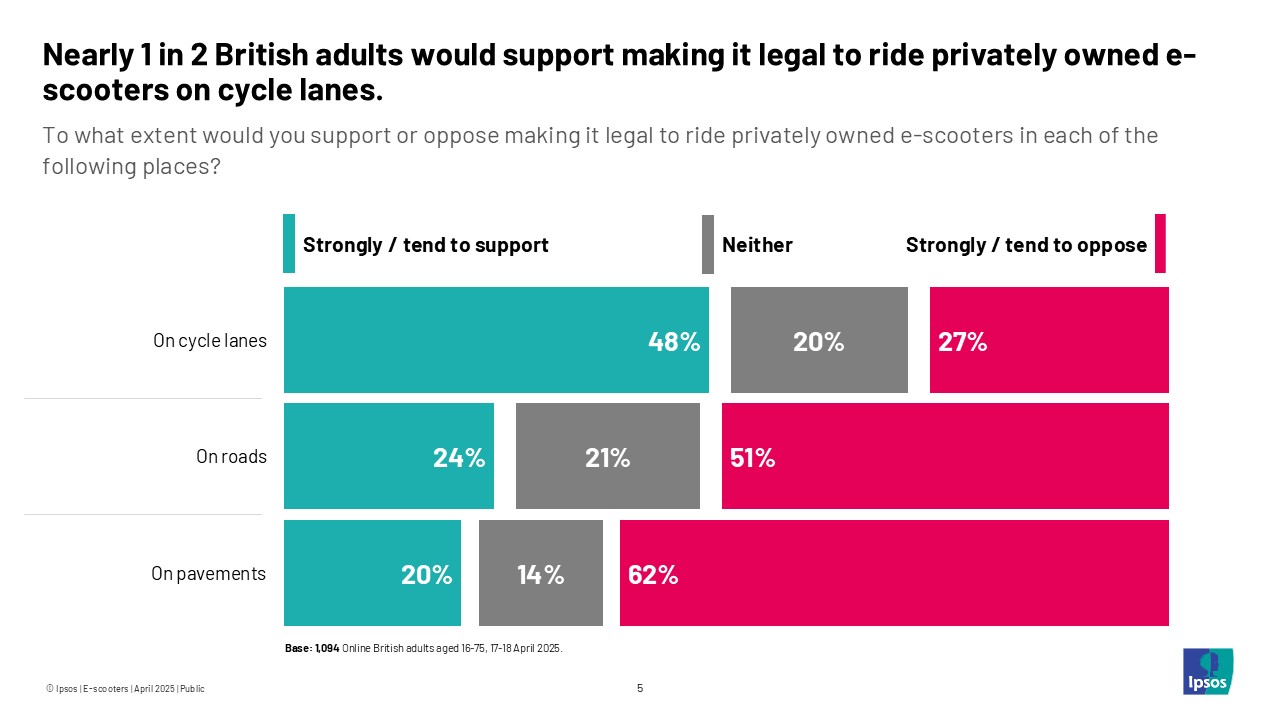E-scooters: public recognise environmental and affordability benefits, but safety fears remain
A new study from Ipsos UK reveals British public opinion towards e-scooters, revealing that while the public recognises the potential environmental and cost benefits that they provide, there are significant concerns about pedestrian safety. While currently privately-owned e-scooters are generally illegal to use on public roads, cycle paths, or pavements, the data also reveals that almost half (48%) support legalising e-scooter use on cycle lanes.
Key findings
- Safety a top concern: 61% of British adults believe e-scooters negatively impact pedestrian safety. Older adults aged 55-75 express significantly greater concern (81%) than younger generations (43% aged 16-34, 61% 35-54).
- Environmental and cost benefits recognised: However, around 2 in 5 see e-scooters as positive for the environment (39%) and cost of travel (40%).

- Almost half support legalisation of e-scooters on cycle lanes: Currently, privately-owned e-scooters are generally illegal to use on public roads, cycle paths, or pavements. While there is strong opposition to legalising e-scooter use on pavements (62% opposed) and roads (51% opposed), almost half (48%) support legalising e-scooters on cycle lanes. Younger Britons aged 16-34 (57%) and men (54%) express higher support for legalising the use of e-scooters on cycle lanes than those aged 55-75 (40%) and women (42%).

- Frequent sightings: At least 3 in 5 British adults report seeing e-scooters in their local area at least every week (15% every day, 27% most days, 20% about once or twice per week).
Commenting on the findings, Ben Glanville at Ipsos said:
Our research highlights a complex relationship between the public and e-scooters. While there's a clear acknowledgement of the potential environmental and economic benefits, safety concerns, particularly regarding pedestrians, remain paramount. This suggests a need for targeted interventions, such as improved infrastructure and stricter enforcement of traffic laws, to mitigate these risks and unlock the full potential of e-scooters as a sustainable mode of transport.
Technical note:
- Ipsos Observer interviewed a representative quota sample of 1,094 adults aged 16-75 in Great Britain using its online i:omnibus between the 17th and 18th of April 2025. The sample obtained is representative of the population with quotas on age, gender, region and working status.
- The data has been weighted to the known offline population proportions for age, working status and social grade within gender, and for government office region and education, to reflect the adult population of Great Britain. All polls are subject to a wide range of potential sources of error.



